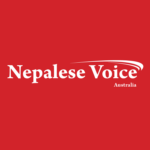
With age-old superstitious beliefs surrounding menstruation, it isn’t uncommon for menstruating individuals in Nepal to be subjected to various kinds of social exclusion.
Not being able to attend school during periods, negligible access to healthcare, forced to avoid religious or social gatherings, and not being allowed to touch plants or male members of the family are some common malpractices among menstruating individuals in Nepal all the while having to bear the physical pain as well as discomfort during the monthly biological process.
The stigma and shame surrounding sexual and reproductive health shuts down any conversation about menstruation and further labels menstruating adolescents as ‘impure’ and ‘untouchable’. Stigmatizing menstruation exacerbates ignorance and acts as the biggest barrier to menstrual hygiene in Nepal.
In order to reach the grassroot of this barrier so as to attain menstrual hygiene, the National Fertility Care Center (NFCC) along with other development partners had launched a one-day Menstruation Complaint Hotline on the occasion of Menstrual Hygiene Day on May 28, 2021. The hotline’s sole aim was to amplify Menstrual Hygiene Management in Nepal.
Menstrual helplines are common in India, USA and several other countries, but their purpose may be different. Most foreign menstruation helplines are made accessible through telephone, email, web or SMS so that young adolescents or concerned individuals can get their queries regarding menstrual health answered.
Such helplines ensure easy access and availability of reliable information on reproductive, sexual health, contraception, pregnancy, infant and child health and other related issues besides menstrual health.
The Menstruation Complaint Hotline led by NFCC was the first of its kind telephone line introduced to listen to, document, and help with local complaints about menstruation-related issues.
This hotline service acts as a glimmer of hope to break menstrual taboos by encouraging conversations about the challenges faced during and due to menstruation. According to the latest Management Information system (MIS) report of the Nepal Telecommunications Authority (NTA), 97.65 percent of the Nepali population have access to telephone service, thus proving the hotline to be the most apt method of communication.
For the first time, anybody from anywhere in Nepal was provided with a platform to speak about period-related issues ranging from difficulty in getting information on menstruation, access to free sanitary napkins and other menstrual hygiene products, to availability of women’s public toilets along with proper handwashing and safe disposal facilities.
The lack of such crucial facilities in schools, health facilities and even public spaces causes great magnitudes of inconvenience to menstruating individuals.
Although the hotline was live for just one day, Jasmine Karki, an NFCC staff member dedicated to the hotline said, “Through the hotline, we were able to recognize multiple issues that we were intuitively unable to trace by connecting with people at individual levels.”
For instance, they received multitudes of complaints about free pad distribution programs functioning throughout different local levels. Although most pad distribution campaigns have been conducted successfully, problems like menstrual waste management emerged as a challenge that the local levels are not well equipped to tackle.
Karki added, “We took the responses positively as it allows room for further improvement in the upcoming programs that we can initiate as we gain more insight.”
Although the organization cannot individually support adolescents and people who registered their complaints, it aims to implement project-based approaches that will ultimately support menstruators as there is scope for initiating campaigns to cater to their needs, informed Karki.
“Thus, with the help of this hotline and forming closer connections with people facing menstruation related problems, NFCC can further follow up on those issues and work on developing effective mechanisms to relay the identified common patterns of issues to higher authorities as they are known to work with and within the government infrastructure and enable continuous networking with government bodies at all levels of administration from the center to the local levels,” she said.
If taken in the right direction, given continuity and expanded, menstruation complaint hotlines can undoubtedly be a step forward in ensuring dignified menstruation by paving the way for future projects to make resources and education about menstrual hygiene accessible.
By Nushla Pradhan






